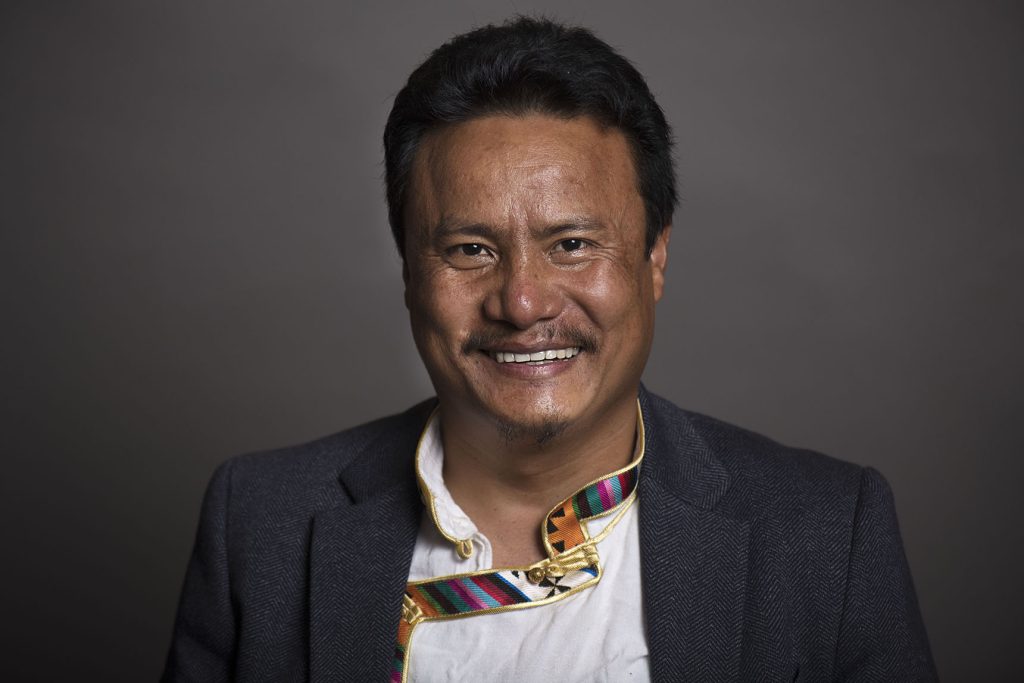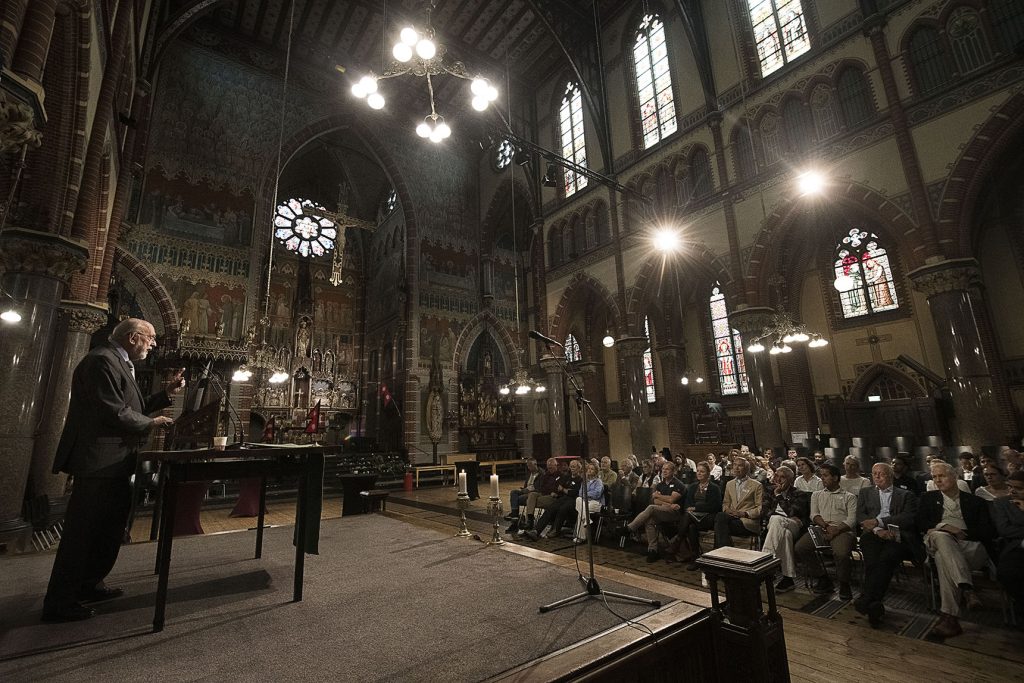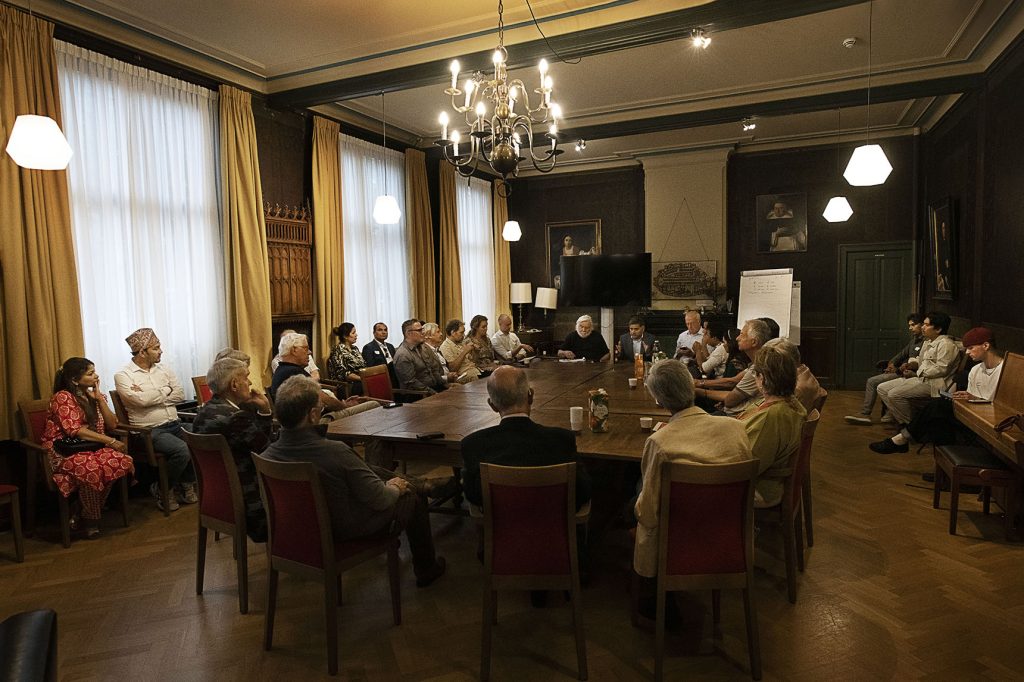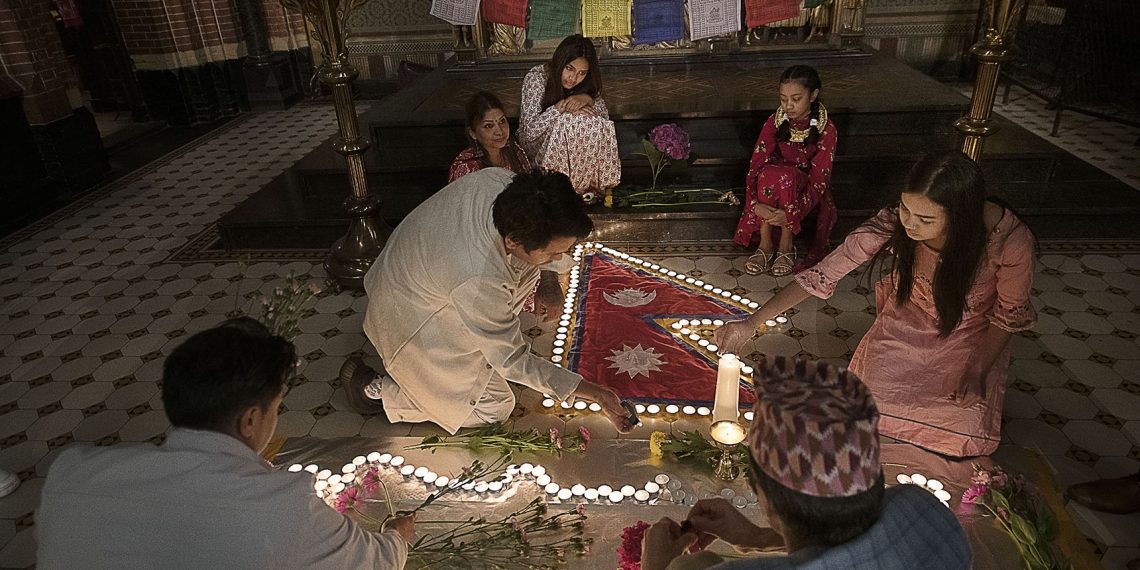A mixture of hope and caution
By Matt Wood
On Saturday, 20 September 2025, members of the Nepalese community, academics, NGO staff from the Netherlands, France and the United Kingdom, all with a special interest in Nepal, came together among the arches and mosaics of the Dominicuskerk in Amsterdam, in solidarity with the people of Nepal and those killed during the recent rallies dubbed the Gen Z protests.
The day commenced with the playing of the Nepalese national anthem as candles were lit at the altar of the church, which had been transformed into a shrine for Nepal. The youth led this moment of commemoration and contemplation, whilst silence filled the hall.
Salient in the various speeches was the need to nurture a spirit of togetherness. Speaking at the opening session of the symposium, Pema Lama, Vice President of the Non-Resident Nepalese Association (NRNA-NCC), took to the stage, flanked on either side by the red-and-blue sun and moon of the Nepalese flag. Pema stressed that the Nepali-focused movement must continue to “not just stand together today but work together tomorrow.” In his view, the event marked “a move towards hope, for the future of Nepal and the greater inclusion of young people in the politics of tomorrow.”
Pema also expressed concern about the actions of breakaway factions that seem to co-opt the movement’s aims, causing much of the damage and destruction that have garnered headlines worldwide.

Drawing parallels to the wider theatre of uncertain times, Dutch academic, Cees Jan Hamelink, stated during a lecture reflecting on crisis and communication that young people are the common thread seen among increasing instances of protest and political upheaval that is sweeping the globe; particularly its South Asian corner – with Indonesia, Sri Lanka and Bangladesh all witnessing youth-lead protest and political unrest in recent times. Hamelink highlighted that this ongoing trend is defined by a refusal of young people “to allow the older generation to colonise their future.” This new protest space has been characterised by new actors, new tools, and the rise of digital power, Hamelink continued.

Following the introductory morning session, food was provided. A flavourful plethora of Nepalese dishes and dal – causing much delight among attendees. The lunch break was a moment for old friends to catch up, and new friendships were formed over the shared meal.
The programme for the day was heavily altered following the events of the protests. The initially planned symposium was postponed until the spring of next year, after the scheduled elections. The revised afternoon debate became defined by its air of positivity despite the tragedy of the preceding week. This session was dedicated to a closed-door roundtable, where key stakeholders from the development sector and representatives of social enterprises operating in Nepal discussed how to ensure better cooperation among different partners committed to the vital work in Nepal.
The causes of the demonstrations were discussed to build a more straightforward narrative and understanding of what unfolded, as well as how the Nepal-focused community can move forward.

Further positivity was found in the response of the Nepali Army. The military was commended for its exercise of restraint in ensuring stability in the Himalayan nation. In contrast, throughout history, many other armed forces have used these occasions of social and political upheaval to seize power forcibly.

As the day ended and the roundtable concluded its session, the attendees remarked that although there is great cause for hope, we must remain cautious, especially in the run-up to the elections currently scheduled for March 5, 2026, where there is a risk of further unrest depending on the actions of the elite that still hold significant power over Nepali politics. The key person to watch in the coming months will be President Ram Chandra Poudel, who is, after all, a long-standing member of the political elite that the youth movement has fought so hard and sacrificed so much in its goal to create a more equal and prosperous Nepal. Some voices in the room raised concerns that he might disrupt the electoral process.
Matt Wood is a junior editor at Nepal Connect.


